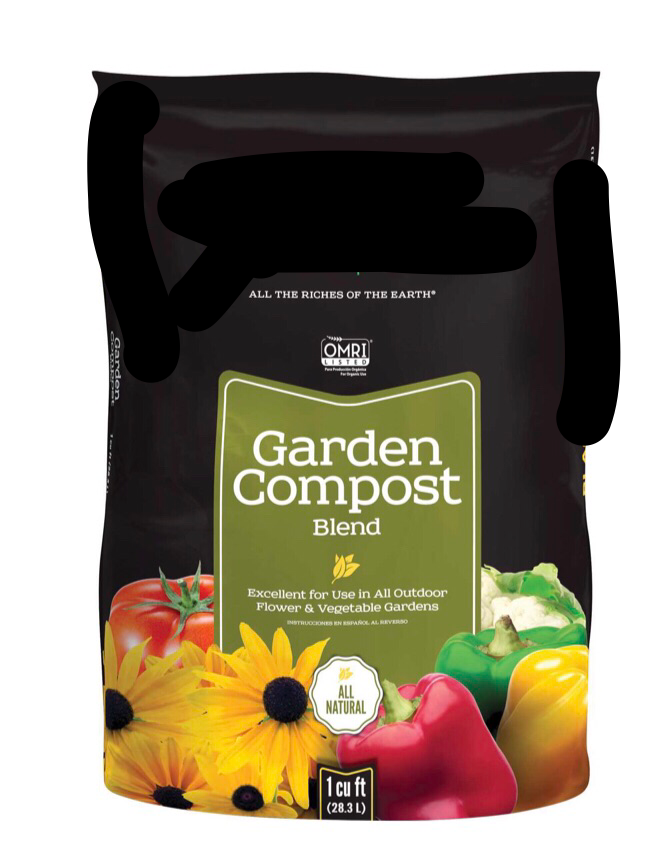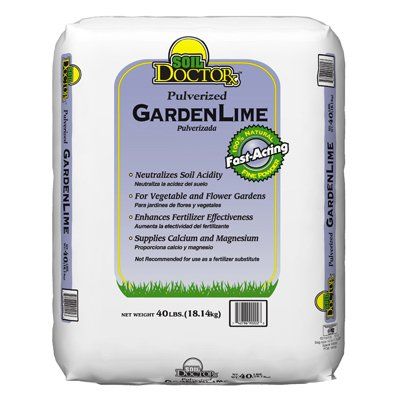Trouble with your garden last year and you’re wondering what amendments will fix it? It is time to stop treating your garden like most Americans treat their health woes: With a pill or a fad.

Please don’t misunderstand me – humans need medications (and vaccinations!) and soils often need amendments. However, I consistently see people saying they’ve got various issues with their garden and kind folk prescribe “compost”* or another amendment. (Interestingly, nobody ever seems to suggest checking the soil’s pH.)
That isn’t good gardening –
that’s just random guessing and baseless advice.
If your garden didn’t perform well last year, you don’t want to waste another year trying compost or other amendments willy nilly. That can lead to another lost year, and then another after that, and so on. Who has time for that? You want it fixed so you can grow good food and you want it now! (We all want that.)

During that lost year you can easily spend $15 on a popular brand of garden fertilizer, another $15 on liquid fertilizer, and that again on various other amendments, without solving the problem and potentially creating new problems along the way. (Too much of a good thing can indeed be a problem.)
GET THEE A SOIL TEST, and I’m not talking about a home test, either. Instead of (or at least before) spending $15 on a bag of fertilizer that may or may not fix your soil’s problems, spend $15 on a soil test from a reputable lab like UMass Soil Lab. The results will tell you your soil’s pH, if you’ve got heavy metals you should be concerned about, and which amendments you should add in what quantity.
For $15 you can save a lot of money on amendments and potential frustration of another mediocre season. Stop guessing. Stop messing around with fad fixes. Get thee a soil test!
*Compost is good and has its place, but it isn’t some sort of miracle super food for plants that solves any and all problems. I say this as someone who makes 4 cu yd of compost at a time, teaches compost classes, writes a blog about making compost (among other things), and more.
Compost will definitely work well to smother weed seeds, help retain moisture, improve organic matter and compost will also add some nutrients. However, it won’t be enough, or it will be too much, and it won’t change the soil’s pH.
In the case of Nitrogen, compost adds very little. This is why I add nitrogen to my garden beds every year, usually in the form of blood meal. If you’re using widely available compost from municipal yard waste, the amount of nitrogen is about 1%. (Organic garden fertilizers are typically around 3%.) Composted animal manures are generally around 2-4%. However, pure compost is rarely (ever?) labelled with any N-P-K value because that would require testing every batch of compost. Bagged compost is also very expensive, ranging from $6-$10 per one cubic foot.
In the case of Phosphorous (P) and Potassium (K), compost can have so much of each that annual applications can lead to excess amounts of both. This is especially true with animal manures. That can be a problem.
One more thing: If you have a dozen raised beds (or multiple in-ground beds), then taking a soil sample of each becomes unwieldy and expensive. At some point, with experience and by treating each bed the same, you’ll be able to take one soil test and use that information as a guide for all of your garden.
